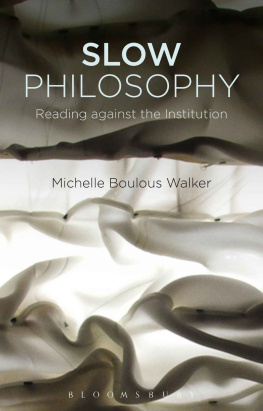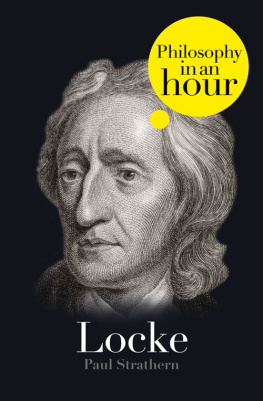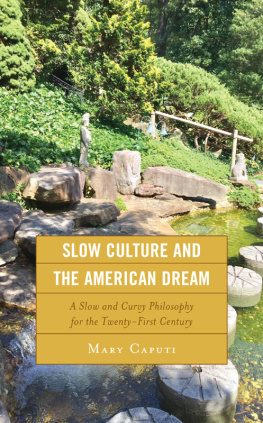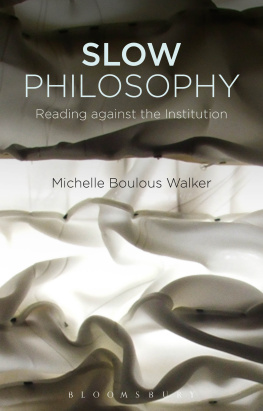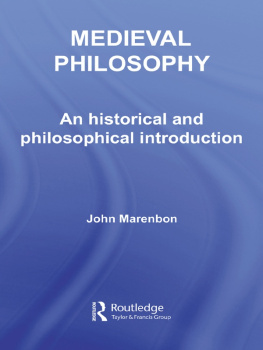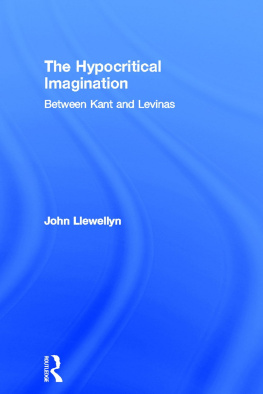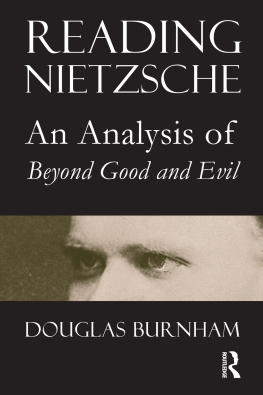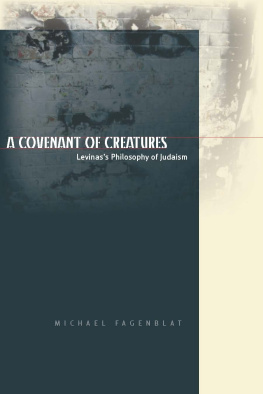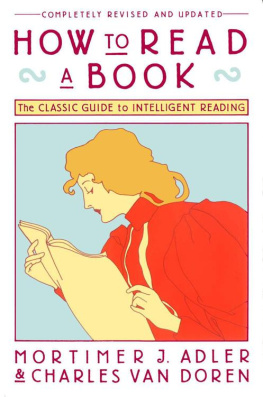Slow Philosophy

For Christian and for Solomon
CONTENTS
Writing is a thoroughly collaborate practice, despite our intuitions and prejudices to the contrary. In acknowledging this, I acknowledge the collaborative work that I have undertaken with Matthew Lamb, who has been a (slow) reader of extraordinary care and grace in relation to this work. I thank him most warmly for the ongoing opportunity to engage in dialogue and to experience the rare pleasure of thinking with another. I thank him, too, for his generosity and openness in an age where a competitive atmosphere haunts the modern institution, and all too often threatens the very fragile nature of intellectual collegiality. In addition, I thank Costica Bradatan for his intellectual belief in this work and his strategic genius in helping me to publish it. Working with Costica and Matthew constitutes one of the sustaining joys of my academic life. Another of these is the privileged relation of working with graduate students and I thank the many young philosophers I have worked closely with over the years. They continue to inspire and sustain me. I thank them past and present most warmly, especially Laura Roberts, Emma Wilson, Mark Cutler, Marco Motta and Bryan Mukandi. I thank, additionally, the generosity and insight of colleagues who have worked with me, encouraged me, and in some cases commented on various drafts. I am greatly indebted to them for ongoing conversation and intellectual support. In particular I thank Fred DAgostino, Anne Freadman, Caitlin Goss, Max Deutscher, Julie Kelso, Martin Lloyd, Nick Trakakis, Carole Ramsey, Ruth Hagengruber and Louis du Toit. I thank, too, my colleagues in the School of Historical and Philosophical Inquiry, especially though not exclusively, in philosophy. I thank particularly Clive Moore, Marguerite La Caze and Gilbert Burgh. I thank the following people who in various and diverse ways have supported me throughout the writing of this work: Anthony Ashbolt, Christine Barron, Sandi Black, Angela Hirst, Michelle Irving, Margi Jones, Hilma af Klint, Thomas Kreutzer, David McMillan, Silvia Menjivar, Nyla Pusinsky and my beloved family. Importantly, I acknowledge and thank my Berlin connection, the scholars, writers and journalists who continue to nourish me intellectually and spiritually. I thank Sabine Sielke, Anne Haubek, Riikka Ala-Harja and Laurel Fulkerson. Finally, I thank Ellie Gleeson at le mot juste and my publishers and editors, Liza Thompson, Frankie Mace, Merv Honeywood and Carole Pearce at Bloomsbury for the care and attention they have brought to the publication of this work.
Thanks and acknowledgement to the following journals and publishing houses for permission to reprint revised versions of early work: Early versions of parts of chapter two and chapter three first appeared in different form as An Ethics of Reading: Adorno, Levinas and Irigaray in Philosophy Today 50(2) 2006: 22338, Becoming Slow: Philosophy, Reading, and the Essay in Antipodean Philosopher: Public Lectures on Philosophy in Australia and New Zealand edited by Graham Oppy and N.N. Trakakis Copyright 2011 (used by permission of Roman & Littlefield Publishing Group. All rights reserved), and Imagining Happiness: Literature and the Essay in Culture, Theory and Critique 54(2) 2013: 194208 (reprinted by permission of Taylor & Francis Ltd, www.tandfonline.com). An early version of part of chapter five first appeared in different form as Love, Ethics and Authenticity: Beauvoirs Lesson in what it means to Read in Hypatia 25(2) Spring 2010: 33456 (reprinted by permission of John Wiley and Sons Inc).
Special thanks to Richard Flanagan and Vintage for permission to publish passages from Goulds Book of Fish (Sydney: Vintage 2012). These passages appear as epigraphs to each of the chapters in this book serving a purpose that is partially revealed in the conclusion.
an infinitely slow process of metamorphosis.
RICHARD FLANAGAN, GOULDS BOOK OF FISH: 342
I venture to suggest that our age threatens one day to appear in the history of human culture as marked by the most dramatic and difficult trial of all, the discovery of and training in the meaning of the simplest acts of existence:
In his now notorious reading of Das Kapital, Louis
In a film about the philosopher Hannah Arendt by the German director Margarethe von Trotta (Trotta 2012), Arendt is pictured lying on a sofa, smoking. Nothing appears to be happening. Arendt, it seems, is thinking. The length of this scene is unusual when compared to contemporary mainstream cinema; a cinema characterized by activity and action, narrowly defined. What is it about this image that unsettles? Time passes and it does so slowly. In fact, temporality and its unique relation with thinking is a theme von Trotta weaves throughout the entire narrative of the film. Arendt is slow (painfully slow, from the perspective of those editing TheNew Yorker), in delivering what will to the larger reading public become her most controversial work her report on the trial of Adolf Eichmann in Jerusalem (Arendt 1963). From the perspective of those working at TheNew Yorker, Arendts work is infuriatingly slow. For those with weekly, or even monthly, deadlines the reality of having to wait for Arendts judgement to arrive is a burden that positions those of us viewing the film between the seemingly everyday world of journalistic reality with its deadlines and quick analyses and the slow world of philosophical thought and judgement. Arendts report arrives late because her work her thinking, willing and judging is work that takes time. It is work that slows one, makes one slow.
I am interested to explore the interconnections between philosophy and slowness, and there are various reasons for this; reasons I discuss as the work unfolds. In essence, though, I am motivated to explore the ground between philosophy and slowness because it provides us with one way of asking questions about what philosophy is today. Within the modern institutional context, the nexus between philosophy and slowness has been seriously compromised. The pressing demands of time, efficiency and productivity make it more and more difficult to adopt a contemplative or intense attitude toward our work. So, in what follows, I explore how slow reading allows philosophy to embrace complexity within an institutional context dominated by speed and efficiency. I explore what it means to read slowly. To read carefully, to reread, and return to what one reads. I consider what philosophical reading is, and what we philosophers do when we read how we read because I believe these questions to be of importance to us all, and not only when we are reading philosophy. Why? Because reading is fundamental to the process not only of sound philosophical work and thought, but to the important work that a good many of us do, both inside and outside the university. For academic or professional readers, it is what we do, and when our institutional structures make it less likely that we will do this well, problems follow. In the institutional context, such problems take the form of our reduced ability to encounter and work with complexity. Under situations of high time pressure, it becomes more and more difficult to engage with the complex and difficult in substantial and intense ways. Given that the encounter with complexity is one of the fundamental ways we think about philosophical work, then our diminished abilities to cope with this encounter are troubling, to say the least.
Another way of thinking about the problems that follow from our reduced opportunities to read slowly and to engage with complexity is to turn to Martin Heideggers work on thinking and its relation with technology. Heideggers insights into modern technological society have a bearing, I think, on what we could call the creeping technological nature of todays institutions. One of Heideggers main observations is that our modern ways of being or existing are impacted upon by that aspect of technological life that reduces everything in its wake to a resource. Our understanding and our ways of being in the world are in danger of becoming technological themselves. Our very understanding is in danger of reducing the world in which we exist to nothing other than resource, or to what Heidegger refers to as standing reserve. To reduce the world and our understanding of it in this way is to fail, in Heideggers terms, to stay with things, to engage with the world in meaningful, non-utilitarian ways (Heidegger 1977: 335, 3649). By striving for ever more speed, efficiency and interchangeability, this technological world-view makes objects or resources out of the things that have previously had meaning for us.

